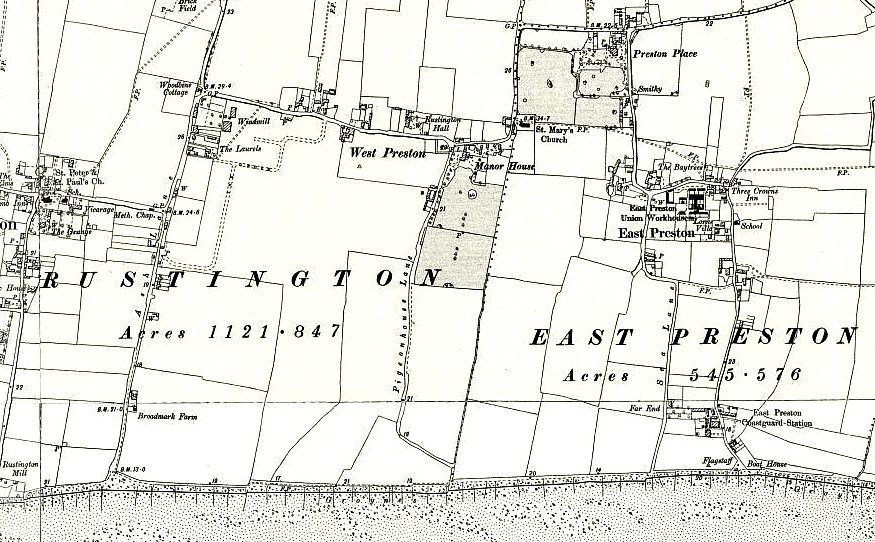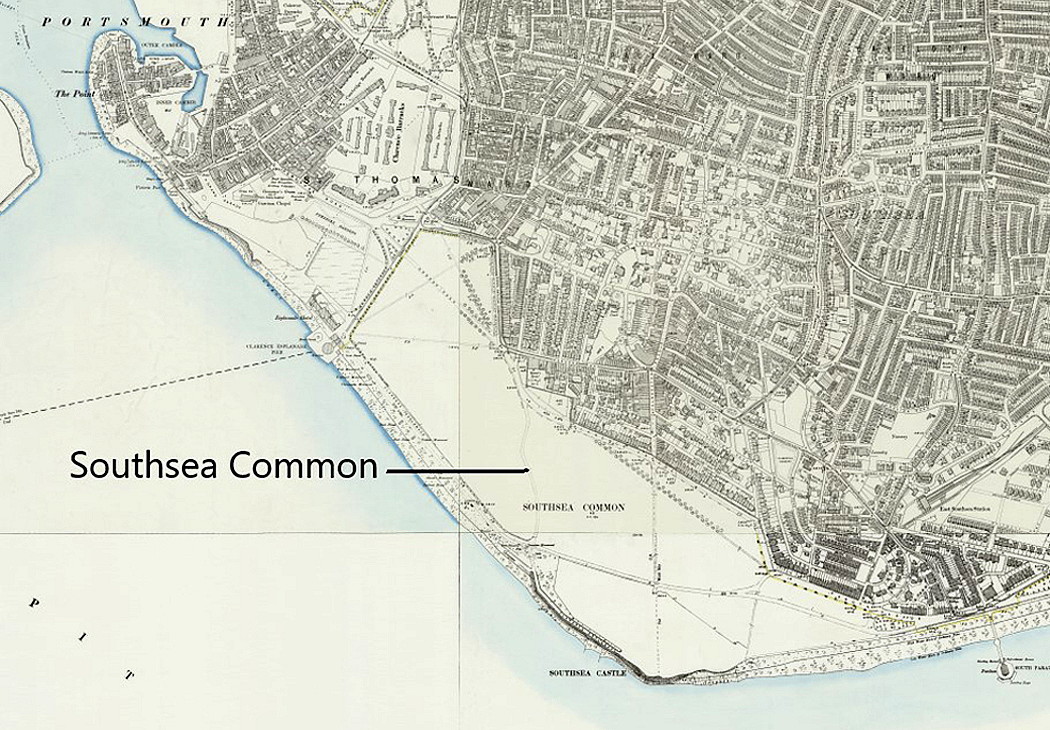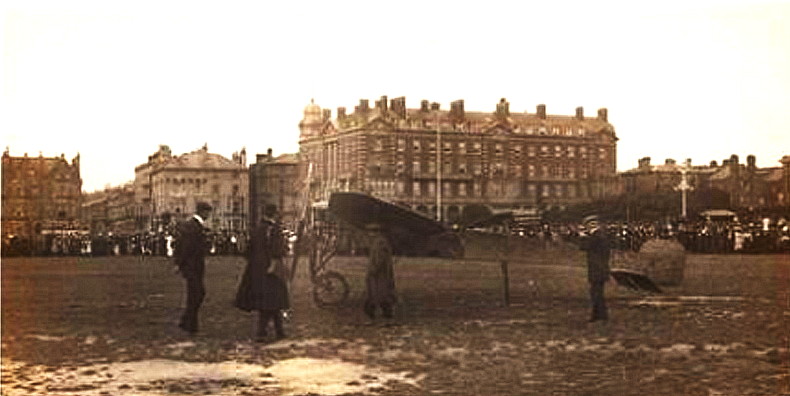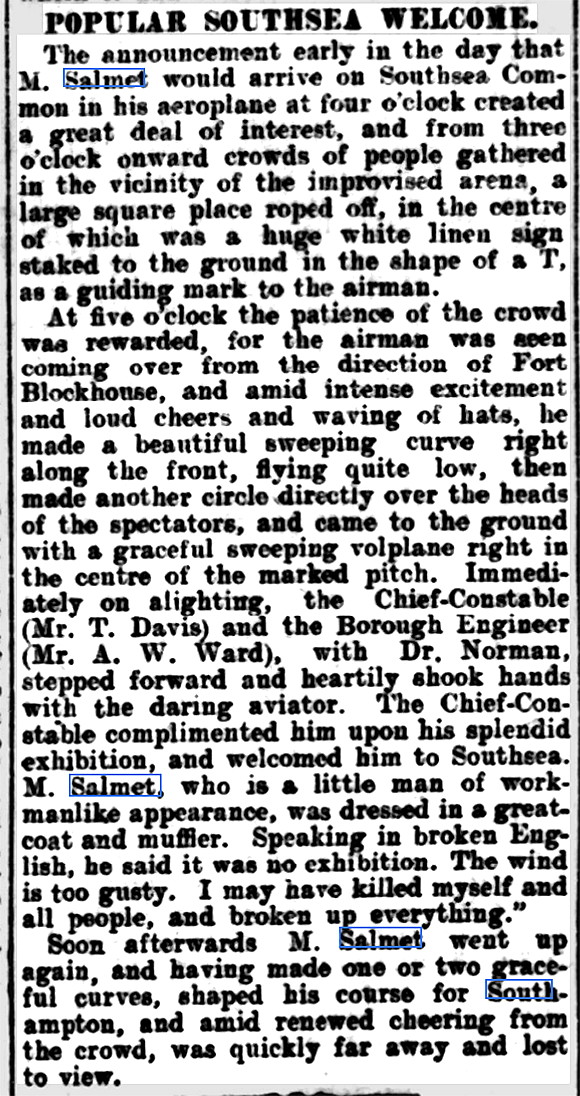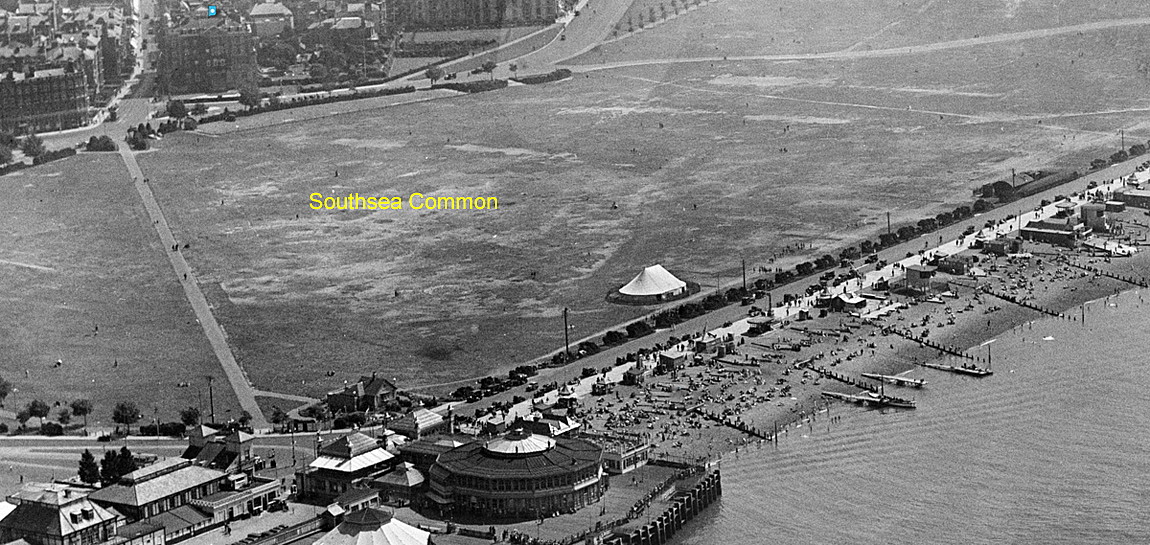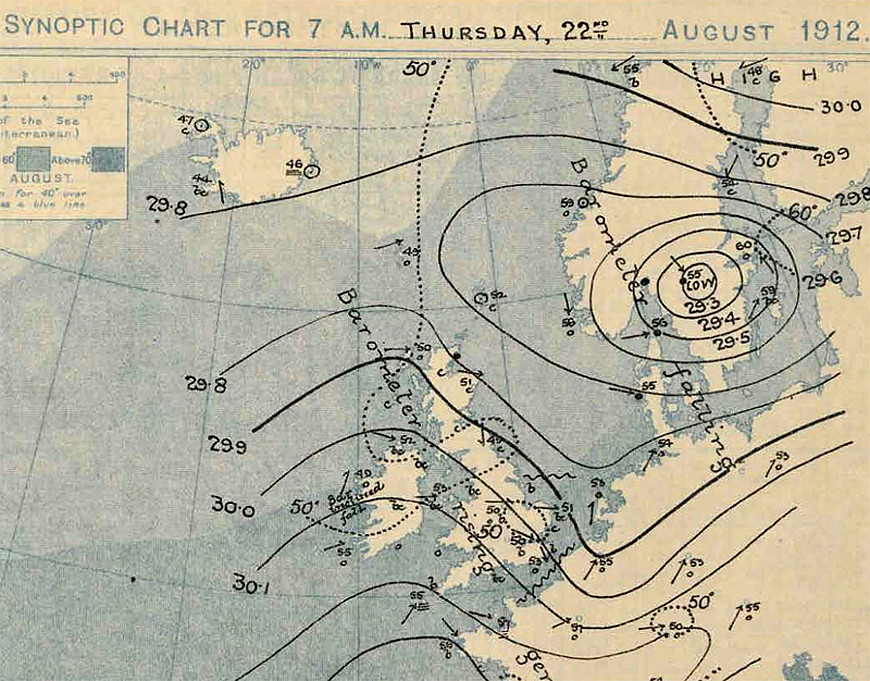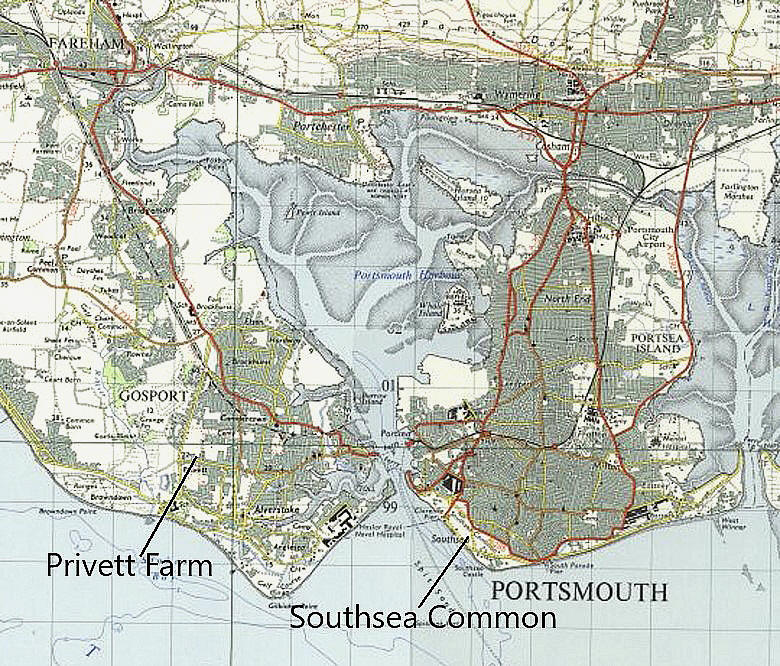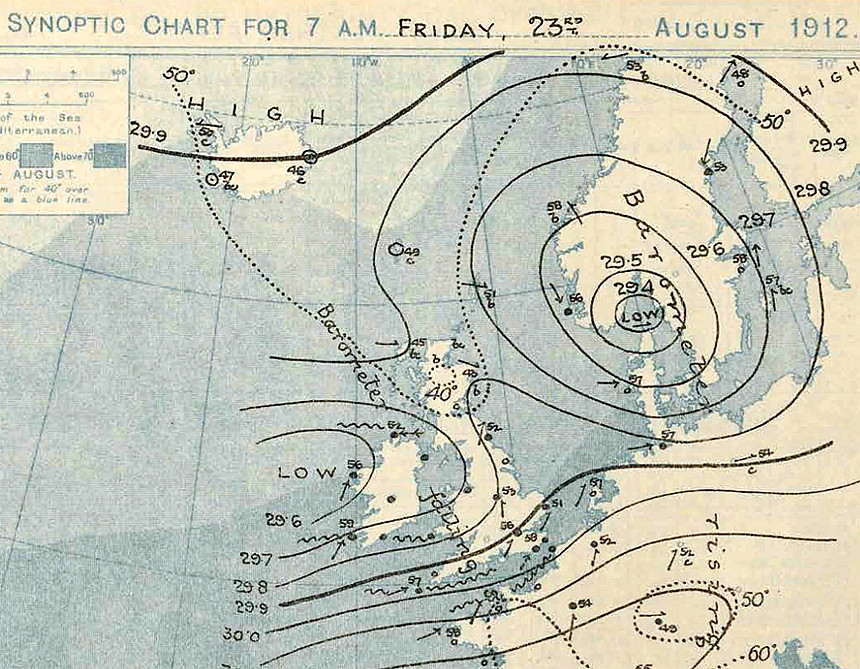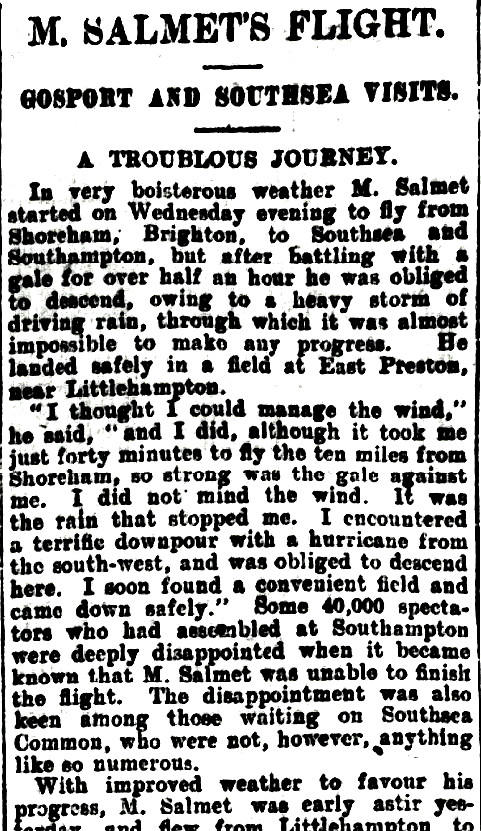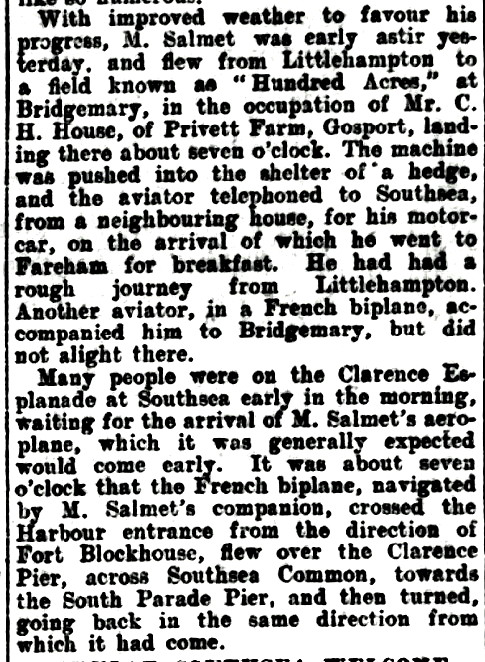Southsea Common
SOUTHSEA COMMON: Temporary Landing Ground
Location: Southsea is part of the city of Portsmouth and Southsea Common is right on the coast in the south-west sector
Period of operation: 22nd August 1912
In 1912 the Daily Mail sponsored six pilots to perform 'exhibitions of flying' around the U.K. Two were to undertake extended tours, these being both equally famous at that time - the French aviator, (as pilots were called in those days), Henri Salmet, and the British aviator Claude Grahame-White. It needs to be remembered that powered aviation did not get going in the U.K. until 1909 - the French were much more advanced - and many Brits went to France to learn how to fly prior to 1909.
Even so the majority of those early aviators, both here and in France, rarely ventured much beyond the confines of the aerodrome - a French term describing an area within which the flying took place. Consequently, when a few very brave, (or foolish?), individuals decided to venture much further afield, they were invariably hailed as heroes, with a social status akin to modern rock stars or highly popular performers in the arts and sports.
Flying over extended distances was, as might be easily imagined, often a perilous business at best, and even by 1912 the situation was much the same. One of the main problems being the weather, especially high winds and heavy rain. Those very light and rather fragile aeroplanes were particlulary at risk flying in turbulence. Indeed, when Salmet departed from SHOREHAM, (near Brighton), with the intention of flying here, he abandoned the attempt and landed at Pigeon Lane between Rustington and East Preston, just east of Littlehampton. (See map).
This episode of the Salmet tour is covered in some detail in my article - "A TROUBLOUS JOURNEY" - compiled with the considerable help of Mike Holder, a great friend of this 'Guide'. Indeed, Mike has undertaken considerable research into this tour, and a full schedule can be found in my article - "The 1912 tour by Henri Salmet".
A MICHAEL T HOLDER GALLERY
Note: The second item, the picture, shows Salmet's Blériot on the Common in front of the Queen's Hotel. The newspaper article was published in the Hampshire Telegraph on the 23rd August 1912.
Note: The newpaper article, shown in two parts to make it easier to read, was also published in the Hampshire Telegraph on the 23rd August 1912.
I suppose we shall never know, but presumably the original plan was for Salmet to visit and stay overnight at SOUTHSEA COMMON? It would have been a major venue during this tour. As the synoptic charts show, he was having quite a struggle against strong headwinds combined with prolonged outbursts of heavy rain. Sitting high up in the open on his machine, (as aeroplanes were called in the U.K. at that time), probably rain obscuring his vision, explains why, having left PIGEON LANE he overshot this venue and landed at PRIVETT FARM in Gosport.
He must have been up against immense pressure to try and keep to the pre-arranged schedule where big civic receptions had been planned in nearly all cases along his route - so something had to give - to enable him to try and catch up.
We'd love to hear from you, so please scroll down to leave a comment!
Leave a comment ...
Copyright (c) UK Airfield Guide















